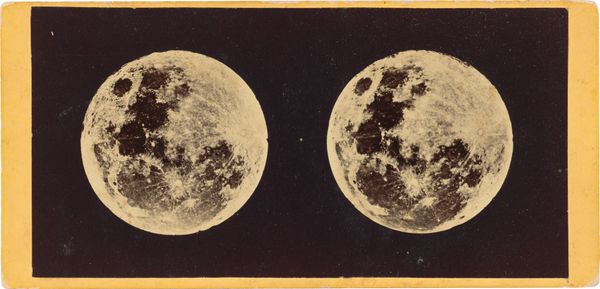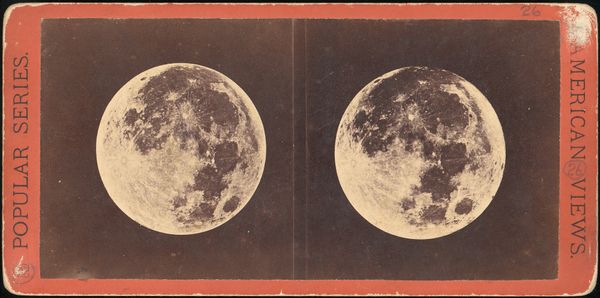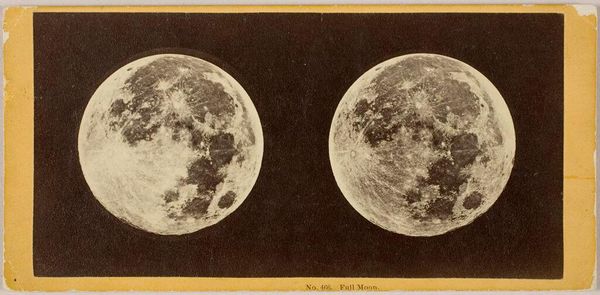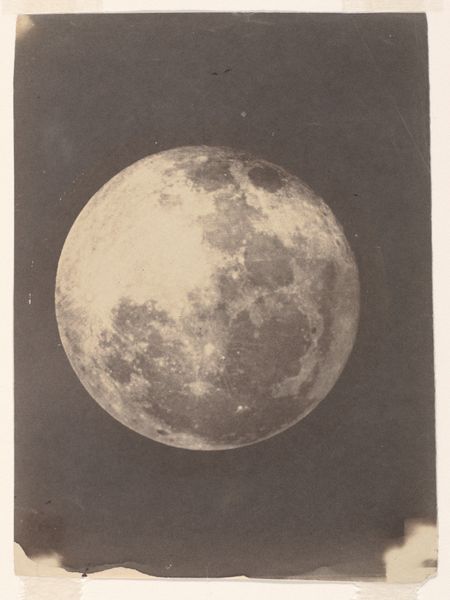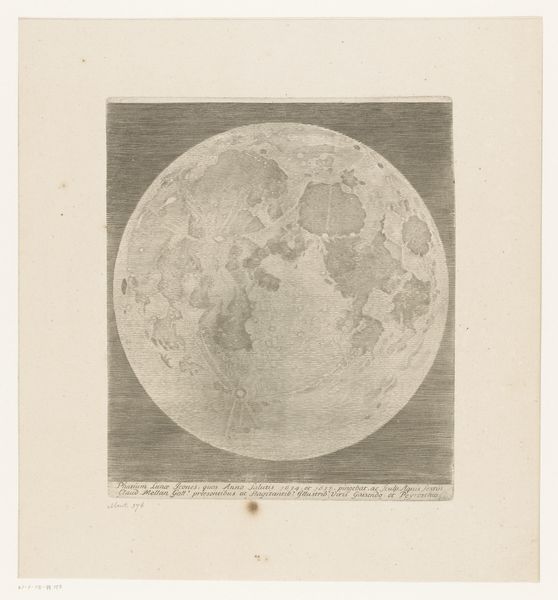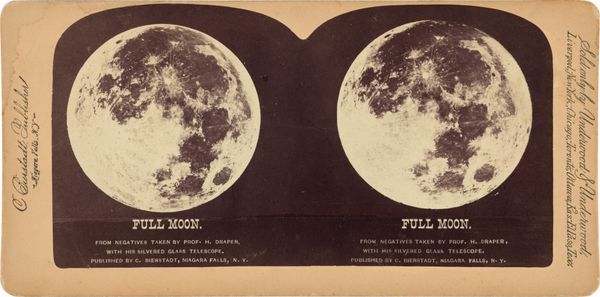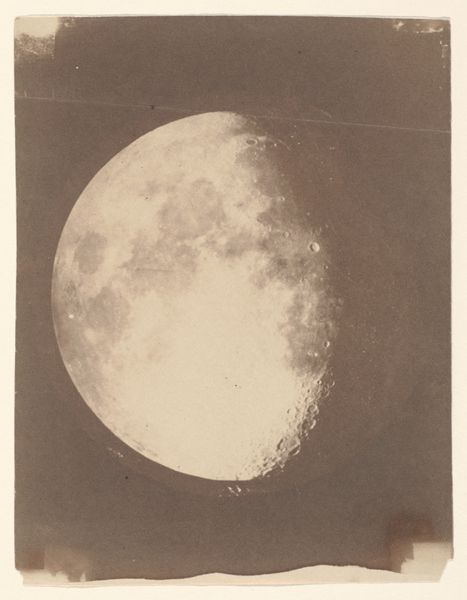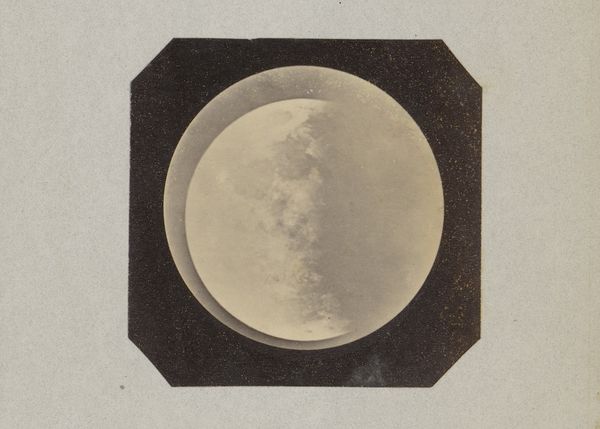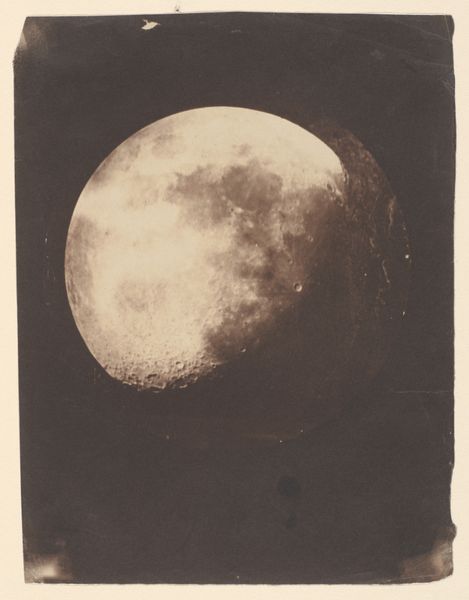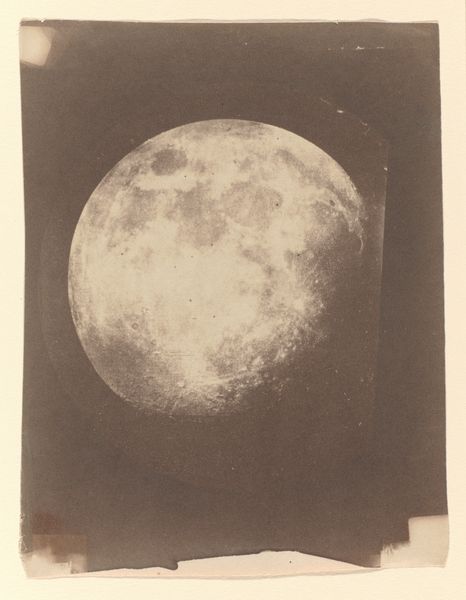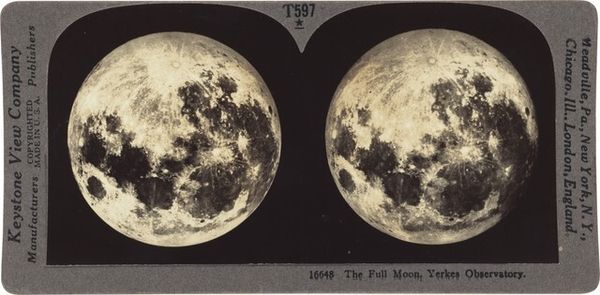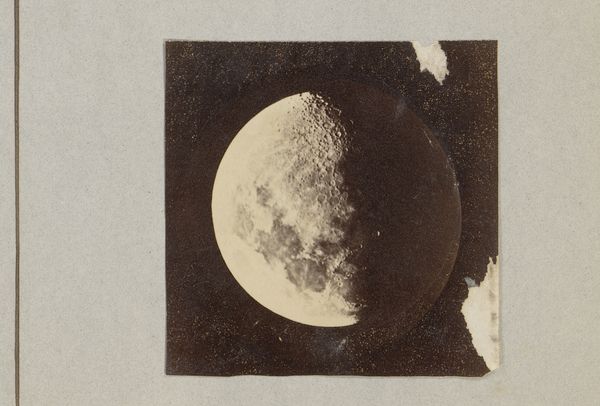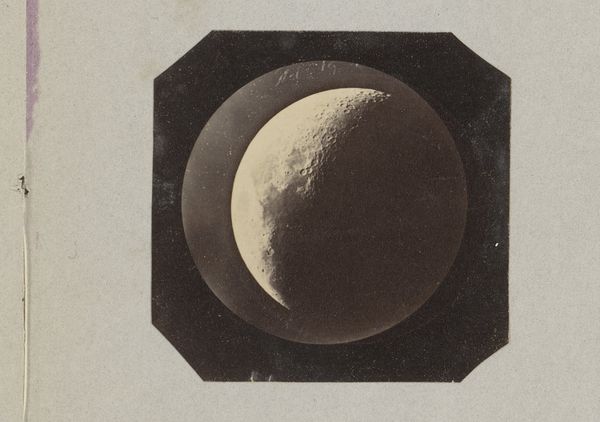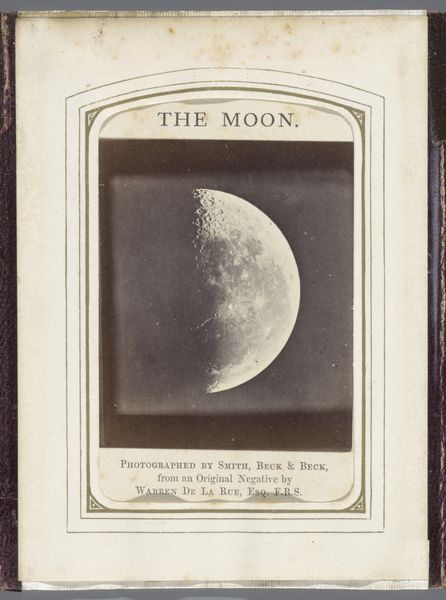
silver, print, photography, gelatin-silver-print
#
still-life-photography
#
16_19th-century
#
silver
# print
#
landscape
#
photography
#
romanticism
#
gelatin-silver-print
Dimensions: 7.6 × 15.5 cm (image); 8.6 × 17.5 cm (card)
Copyright: Public Domain
N. W. Pease made this stereograph titled 'Full Moon' using albumen silver print. The image presents a double view of the moon, designed to create a three-dimensional effect when viewed through a stereoscope. This technological innovation of the 19th century brought distant and exotic landscapes, scientific wonders, and even astronomical phenomena into the parlors of middle-class homes across America. The rise of photography and its integration with other technologies highlights the democratization of knowledge. The image's cultural context lies in the Victorian era's fascination with science, exploration, and the natural world. Photography played a crucial role in shaping public perceptions of these subjects. Here, the moon, long a subject of myth and poetry, is rendered as a tangible, scientifically documentable object. The institutional context involves the burgeoning market for photographic prints and their role in education and entertainment. Further research into photography's role in shaping scientific and popular understanding of astronomy can reveal more about the cultural meaning of this image.
Comments
No comments
Be the first to comment and join the conversation on the ultimate creative platform.
